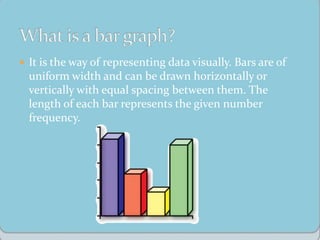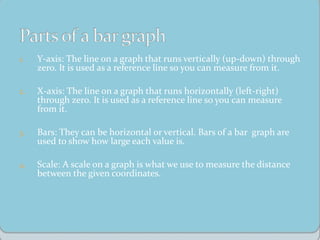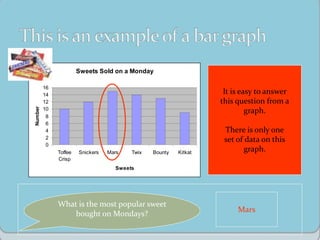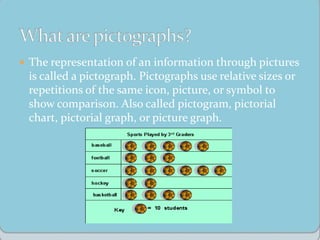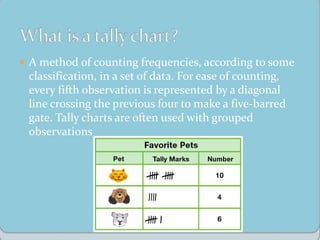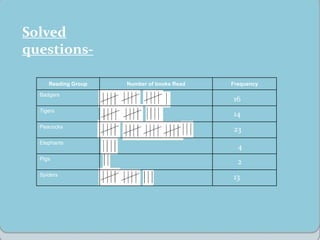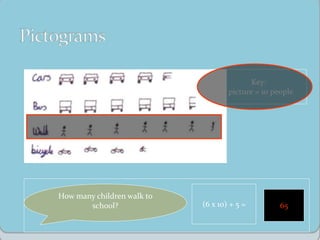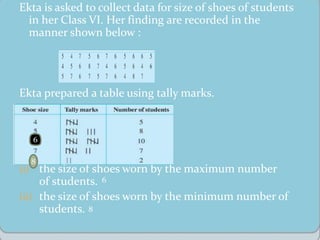Data handling Presentation with solved examples
- 2. ? Data handling is the way in which Data can be represented graphically to give a clear idea of what it represents. It is easier to interpret and organize data using pictorial representation. ? Data handling includes bar graph, pictograph and tally marks.
- 3. ? It is the way of representing data visually. Bars are of uniform width and can be drawn horizontally or vertically with equal spacing between them. The length of each bar represents the given number frequency.
- 5. 1. Y-axis: The line on a graph that runs vertically (up-down) through zero. It is used as a reference line so you can measure from it. 2. X-axis: The line on a graph that runs horizontally (left-right) through zero. It is used as a reference line so you can measure from it. 3. Bars: They can be horizontal or vertical. Bars of a bar graph are used to show how large each value is. 4. Scale: A scale on a graph is what we use to measure the distance between the given coordinates.
- 6. Sweets Sold on a Monday 0 2 4 6 8 10 12 14 16 Toffee Crisp Snickers Mars Twix Bounty Kitkat Sweets Number What is the most popular sweet bought on Mondays? Mars It is easy to answer this question from a graph. There is only one set of data on this graph.
- 7. ? The representation of an information through pictures is called a pictograph. Pictographs use relative sizes or repetitions of the same icon, picture, or symbol to show comparison. Also called pictogram, pictorial chart, pictorial graph, or picture graph.
- 9. ? A method of counting frequencies, according to some classification, in a set of data. For ease of counting, every fifth observation is represented by a diagonal line crossing the previous four to make a five-barred gate. Tally charts are often used with grouped observations
- 10. Reading Group Number of books Read Frequency Badgers Tigers Peacocks Elephants Pigs Spiders Solved questions- 16 14 23 4 2 13
- 11. Key: 1 picture = 10 people How many children walk to school? 65(6 x 10) + 5 =
- 12. Ekta is asked to collect data for size of shoes of students in her Class VI. Her finding are recorded in the manner shown below : Ekta prepared a table using tally marks. (i) the size of shoes worn by the maximum number of students. (ii) the size of shoes worn by the minimum number of students. 6 6 8 8
- 13. Read the adjoining bar graph showing the number of students in a particular class of a school. a) What is the scale of this graph? b) How many new students are added every year? c) Is the number of students in the year 2003 twice that in the year 2000? 1 unit length=10 students 1 unit length = 10 students 10 10 students 30 60 yes


